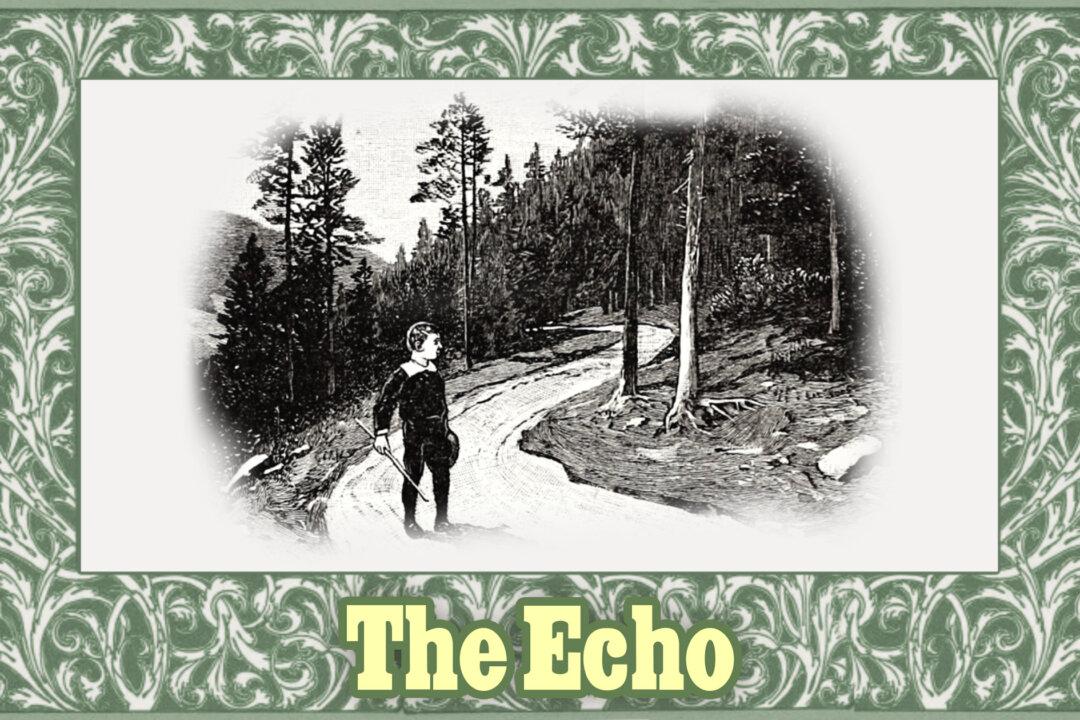This is the 12th installment in our McGuffey Readers series, in which we reproduce some of the best moral tales from these classic 1800s schoolbooks, which sold an estimated 122 million copies by 1960, the largest circulation of any book in the world next to the Bible and Webster’s Dictionary. McGuffey’s Readers played an important role in American history, offering children not only lessons in reading, grammar, and spelling, but also in moral conduct and character. Enjoy, and share with your children!
The Echo
As Robert was one day rambling about, he happened to cry out, “Ho, ho!” He instantly heard coming back from a hill near by, the same words, “Ho, ho!”In great surprise, he said with a loud voice, “Who are you?” Upon this, the same words came back, “Who are you?”






